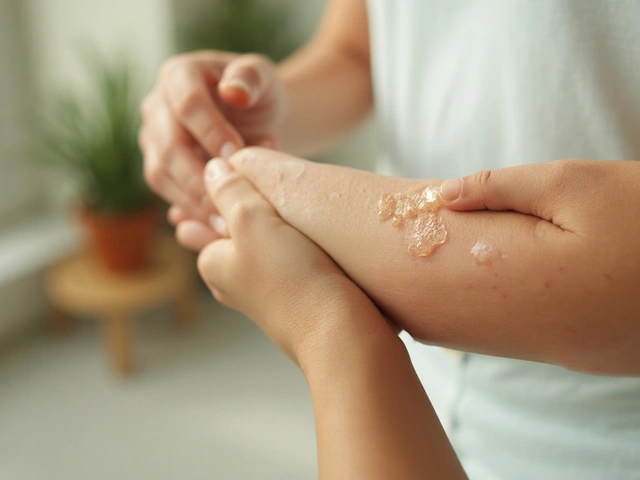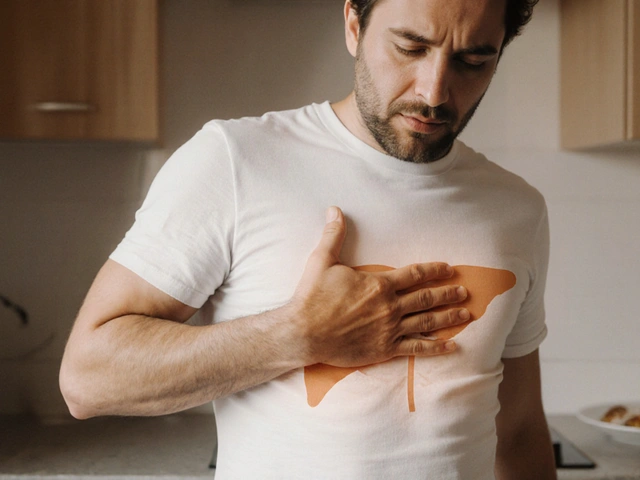Anal Itching: Causes, Quick Relief, and When to See a Doctor
Annoying fact: anal itching is common, but most people feel embarrassed to ask about it. If you have it, you don’t have to suffer in silence. This page explains practical causes, simple things you can try right away, and clear signs that mean you should see a doctor.
What causes anal itching? The short answer: a lot of different things. Loose stools, diarrhea, or leftover stool can irritate the skin. Hemorrhoids and tiny tears (anal fissures) cause itching and sometimes burning. Skin conditions like contact dermatitis or eczema react to soaps, wipes, or scented toilet paper. Fungal or yeast infections and bacterial infections can cause persistent itch. Pinworms are a common cause in children and in adults who live with kids. Certain foods—spicy dishes, coffee, citrus, and alcohol—can make symptoms worse. Finally, moisture from sweating and poor drying after washing keeps the area irritated.
Quick relief you can try today
Start with hygiene that helps, not hurts. Wash the area gently with plain water—no harsh soaps—and pat dry. Avoid scrubbing and don’t use scented wipes or powders. Use soft, unscented toilet paper or dampen toilet paper with water. Try a warm sitz bath for 10–15 minutes several times a day to soothe the skin and clean away irritants.
Over-the-counter options can help short-term. A 1% hydrocortisone cream used for a few days can reduce inflammation and itching, but don’t use steroids long-term without a doctor’s advice. Zinc oxide or petroleum jelly creates a protective barrier that keeps moisture off the skin. If you suspect yeast, an antifungal cream may help—check with a pharmacist if you’re unsure.
Diet and habits matter. Cut back on spicy foods, caffeine, and alcohol for a week to see if symptoms improve. Keep stools soft with fiber and water; hard stools and straining often make itching worse. If you have frequent loose stools, treating the diarrhea will usually ease the itching.
When to see a doctor
See a clinician if itching lasts more than two weeks despite home care, or if you have bleeding, severe pain, a lump, or a change in bowel habits. Also seek care if you suspect an infection from sexual contact, or if multiple household members (especially children) have similar symptoms—pinworms need treatment. People with diabetes or weakened immune systems should get checked sooner because infections can be harder to control.
A doctor will examine the area, ask about medications and diet, and may swab the skin or order stool tests. Treatment depends on the cause: prescription creams for dermatitis, antibiotics for bacterial infections, antifungals for yeast, or specific anti-parasitic drugs for pinworms. Hemorrhoids or fissures may need local procedures or prescription treatments.
Prevention is simple: gentle cleaning, avoiding irritants, managing diet, and keeping stools regular. Small changes often stop the problem before it starts. If you’re unsure what’s causing the itch, a short visit to your health provider can save a lot of guessing and discomfort.
 1 July 2023
1 July 2023
How to Choose the Best Underwear to Prevent Anal Itching
Choosing the right underwear can help prevent anal itching, an issue many people experience but rarely discuss. It's essential to opt for natural, breathable materials like cotton to minimize moisture and irritation. Avoid tight, restrictive underwear styles as they can cause friction, leading to discomfort. Always ensure your underwear is the right size to avoid unnecessary pressure. Lastly, maintain good hygiene and change your underwear daily, as cleanliness plays a significant role in preventing itchiness.
Latest Posts
-

Atomoxetine Overdose: What to Watch For and How It’s Treated
-

Biosimilar Switching: What Happens When You Change From Originator
-

Boost Your Overall Health with the Power of Fructo-Oligosaccharides Dietary Supplement
-

Aloe Vera for Fast Dermatitis Relief: Natural Healing Benefits
-

How Severe Stomach Pain Can Signal Liver Disease

10